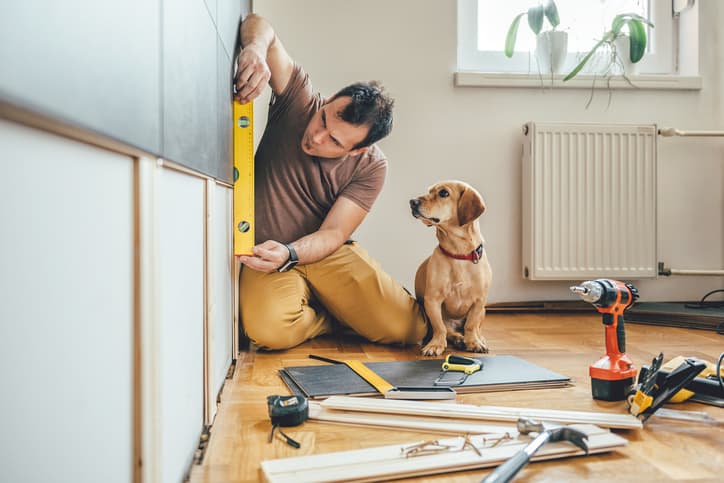
Whether you’ve outgrown your home, decided to add a home office, or need to expand your kitchen to include a sitting area, adding on to your home requires a substantial amount of planning and effort. There are permits to acquire, permissions that are required, and budgets to keep. Some people wonder if it isn’t just easier to buy a new home, but with some planning and understanding of the process, you will be on your way to expanding your living space.
How Much?
The first question that people tend to ask is “How much money is this going to cost me?” It really depends on what you want. Are you paying for this in cash or are you refinancing your home? Are you taking out a second mortgage? Are you simply applying for a Home Equity Line of Credit? HELOC in some cases is not a second mortgage. If your home is paid off, you can still apply for a HELOC to cover the cost of your addition. Some people have even taken a loan against themselves if they had money put away in an annuity. There are several ways to fund your addition, but one thing is for certain; Always budget for at least 20% more than what your plans call for. This extra little bit, your contingency fund, will save you in the event that during your remodel, you discover electrical issues or a problem with a load-bearing wall. This also allows you some leeway when you are adding fixtures or lights and you decide that you want to go with the upgrade after all.
Build Up? Build Out?
The second series of questions you have to ask yourself is “Do I want to build up? Do I want to build out? Do I want to build apart?” Each option comes with its own perks and downfalls. For example, you have decided to build up and this allows you to add an extra bathroom upstairs. How are you going to get plumbing from one end of the house to another? Is the added expense worth it? What about the chance for water leaks? Can you afford to replace the floor upstairs and the ceiling downstairs? If you decide to build out, is it going to take out too much of the backyard? Does it put you too close to the neighbors? Will it blend in with the other homes in the area? Maybe you have decided to build a separate office space away from the house. Is it strong enough to withstand inclement weather? Will it make you feel too secluded being away from the home? Will you recoup your money in the event of a resale? Looking at the downsides of each option keeps you from falling into the trap of “new, bright, and shiny.”
Permissions?
The third series of questions that you have to ask yourself is “Who do I need permissions from in order to make this happen? Do I need to ask my Homeowners Association about it? What permits from the city and county will I require? Will my plans violate any building codes or footage regulations?” Acquiring a building permit is just one of many pieces of paperwork required in order to add on to your property. If you have a homeowners association, it is a good idea to ask them about the requirements in your area for adding on. They may have regulations on the pitch of your roof or how much square footage is allowed in that neighborhood. They may also be concerned with the aesthetics of the place, especially if you live in a historic neighborhood. A great resource to consider when adding on, up, or around your home is a local realtor. Realtors will know the area really well and can tell you if the additions that you would like to add on to your home would be a good investment. There is nothing worse than spending thousands on that kitchen pop-out, only to discover that it did not add very much value to your home. Another thing to think about is property lines. Just how close to your neighbors do you want to be? How close is allowed? Make sure to check with ordinances for regulations on proximity. You wouldn’t want to have to spend more money taking your brand new addition down because you forgot to check into what you were allowed to do. Adding to your home is going to take work, planning, and patience, but in the end, you will have a beautiful space to dwell in.


